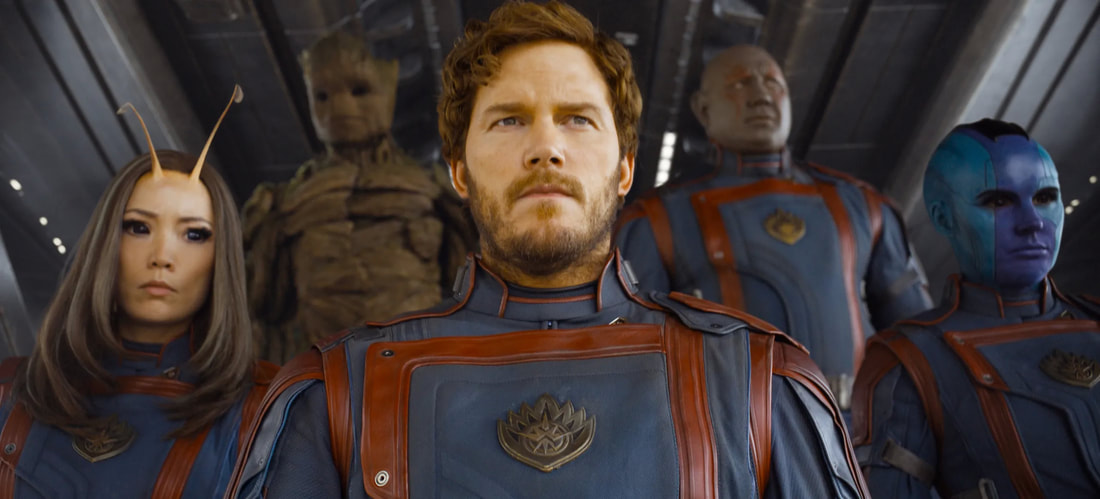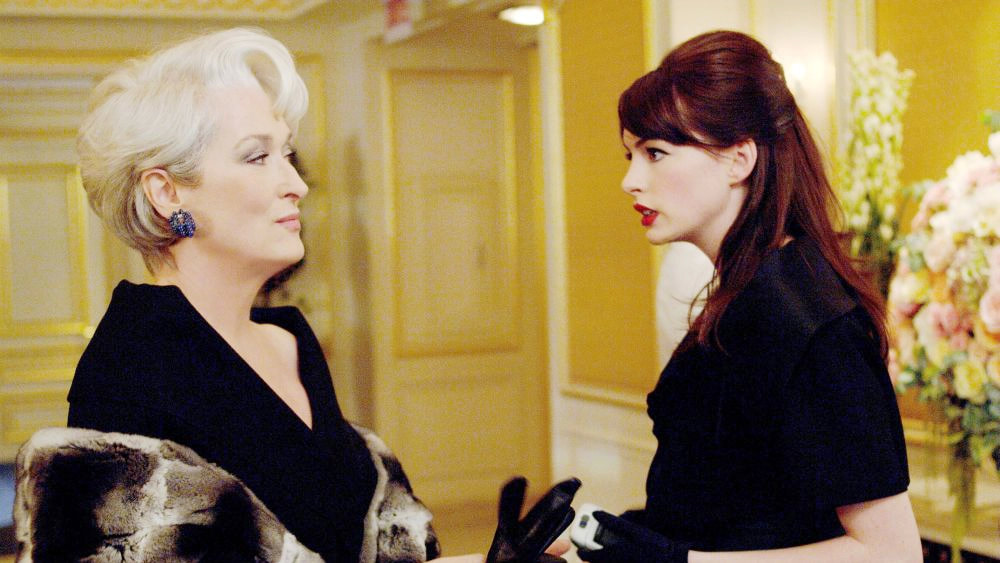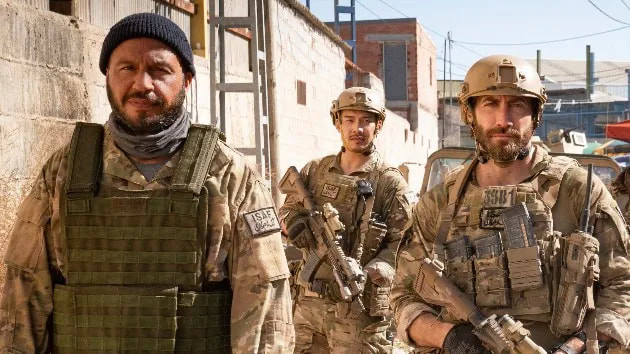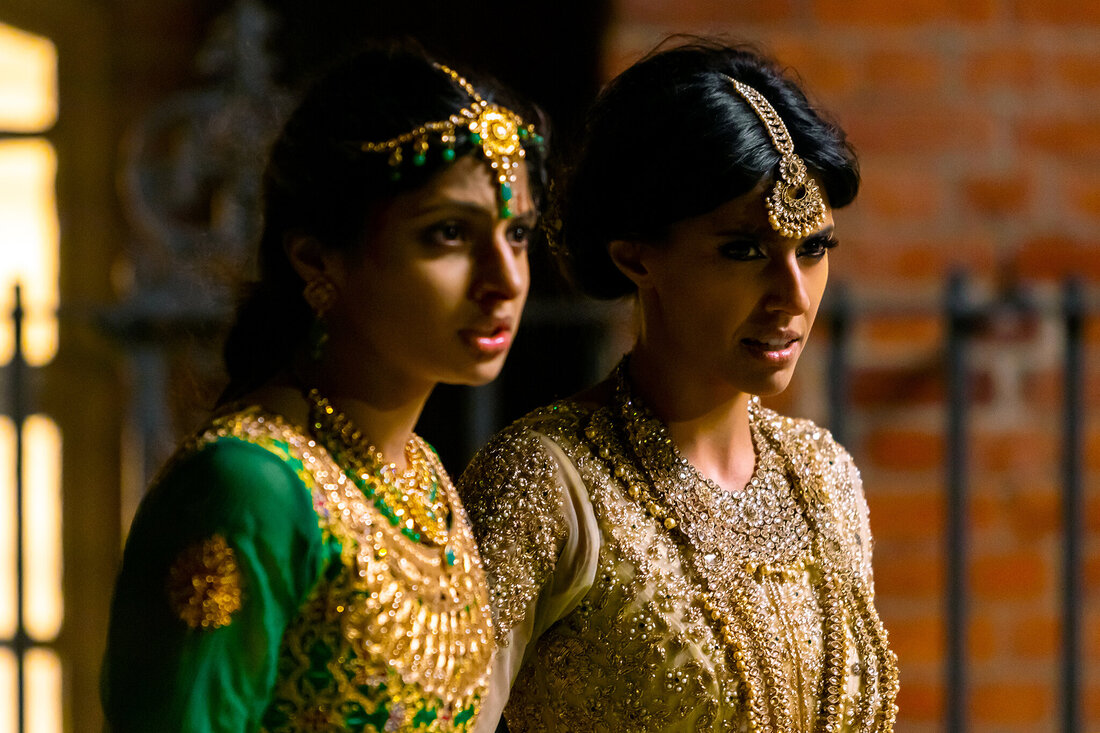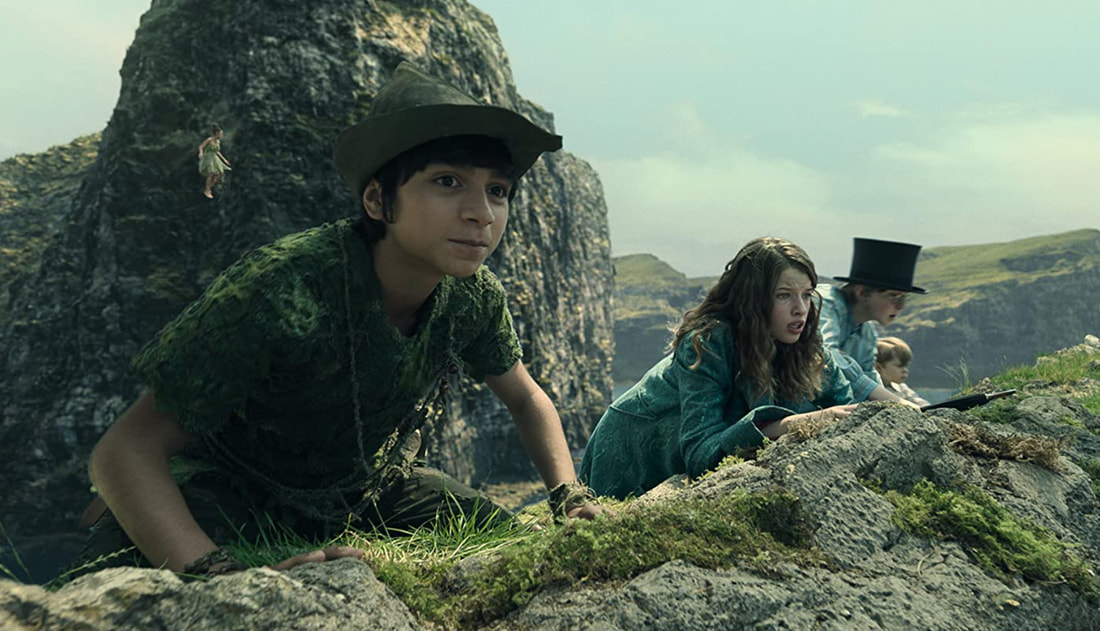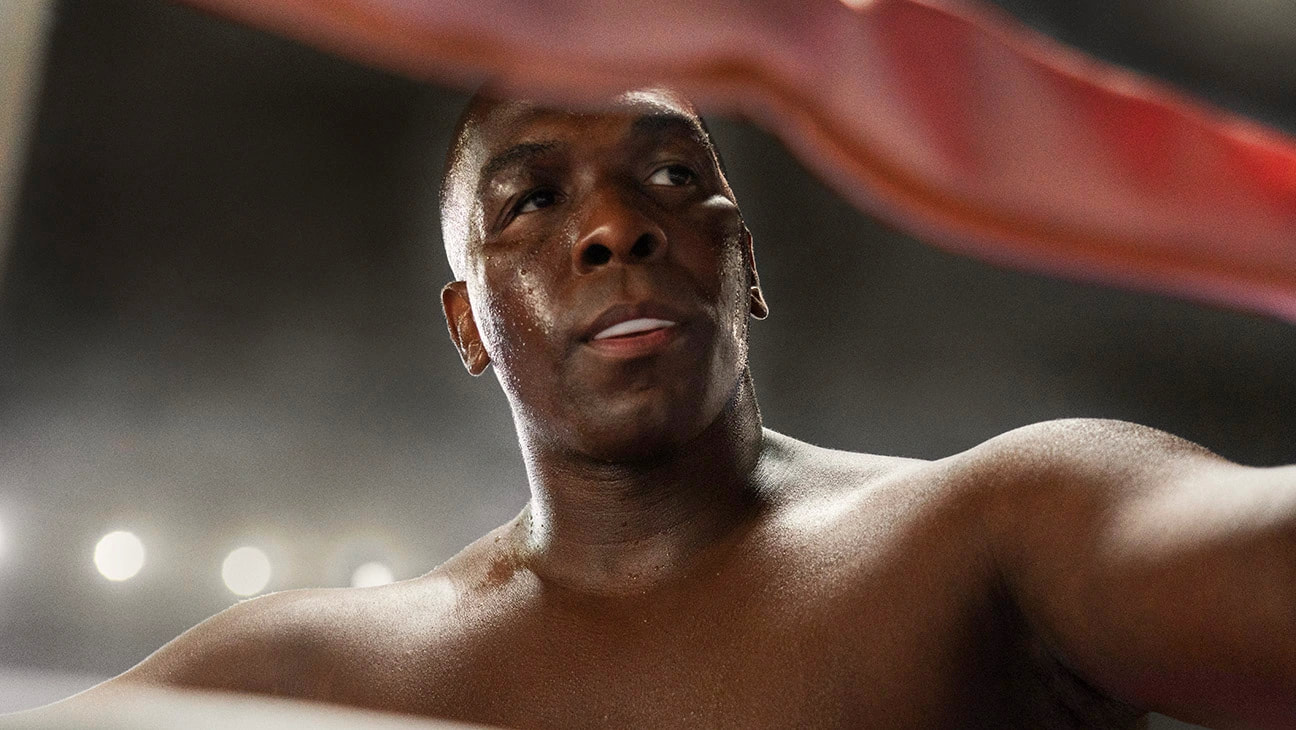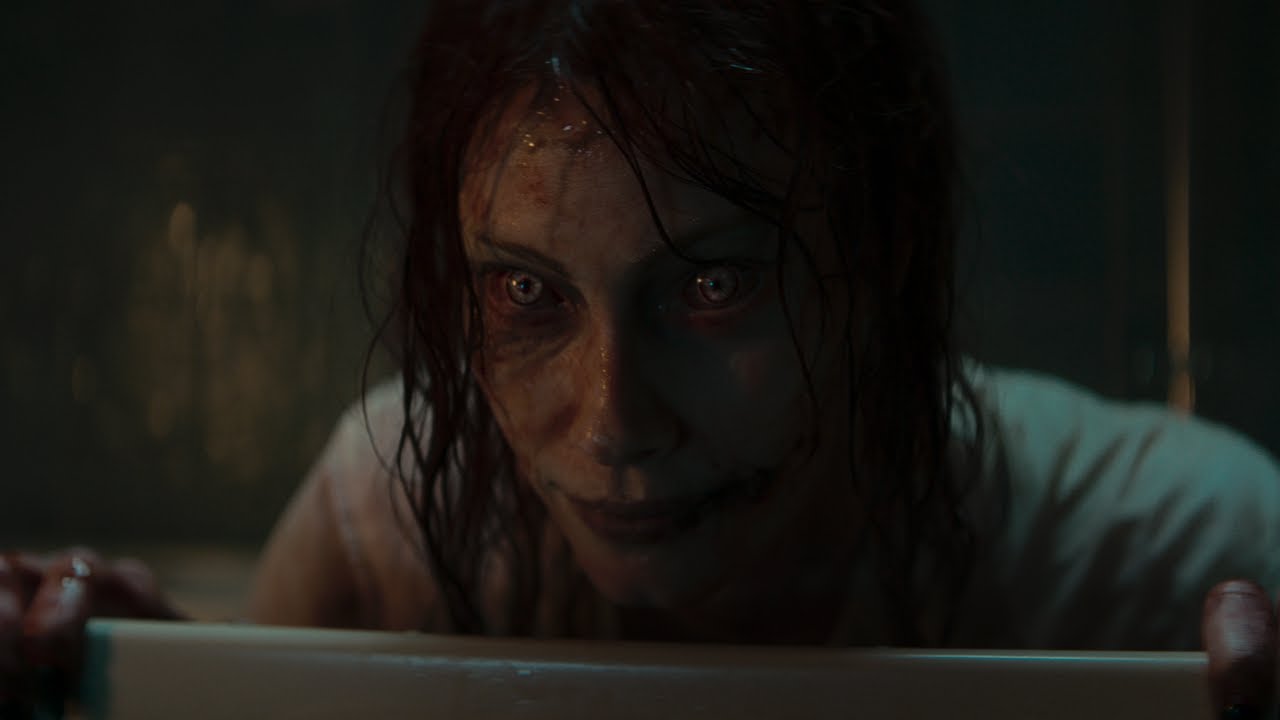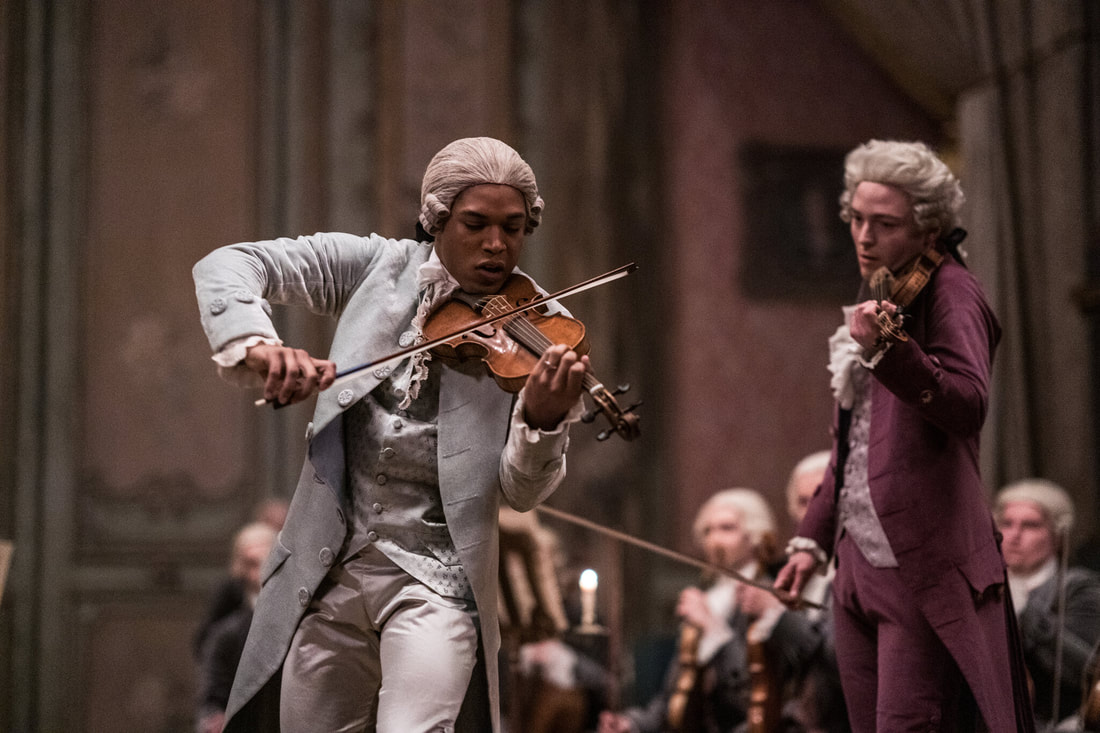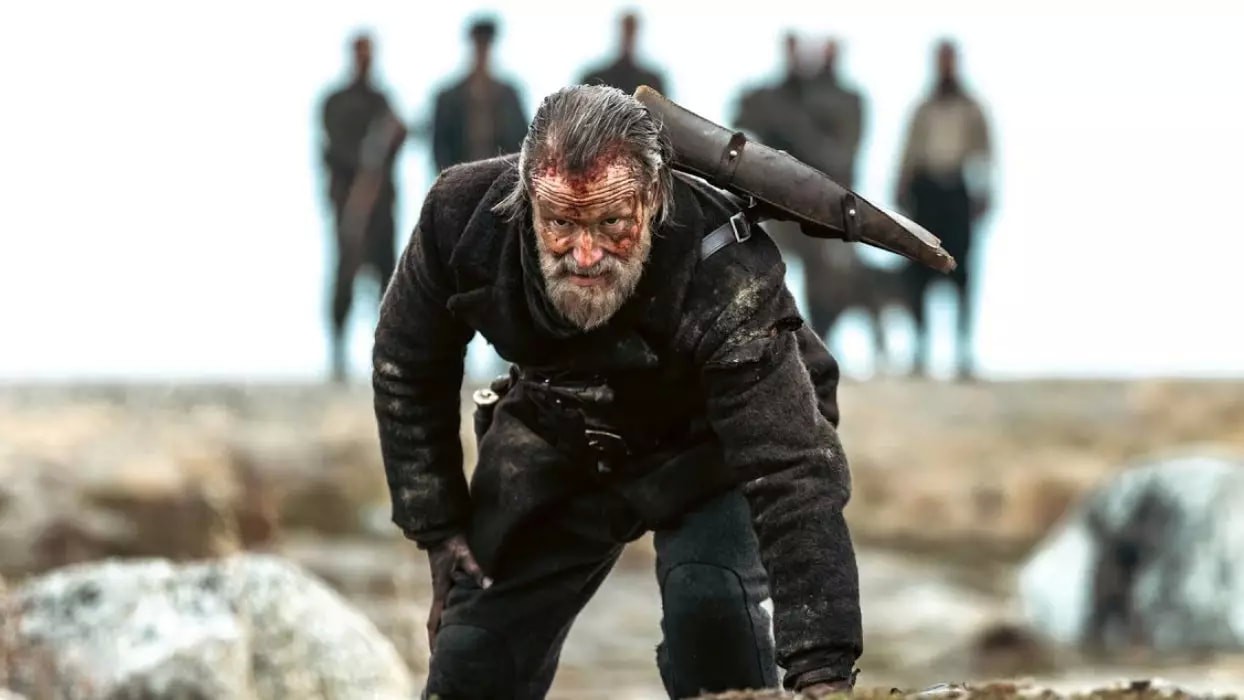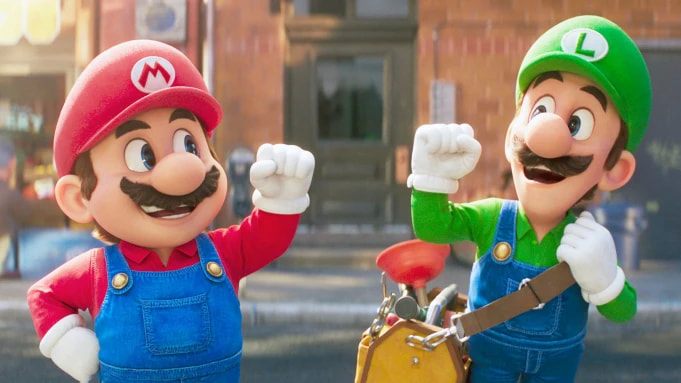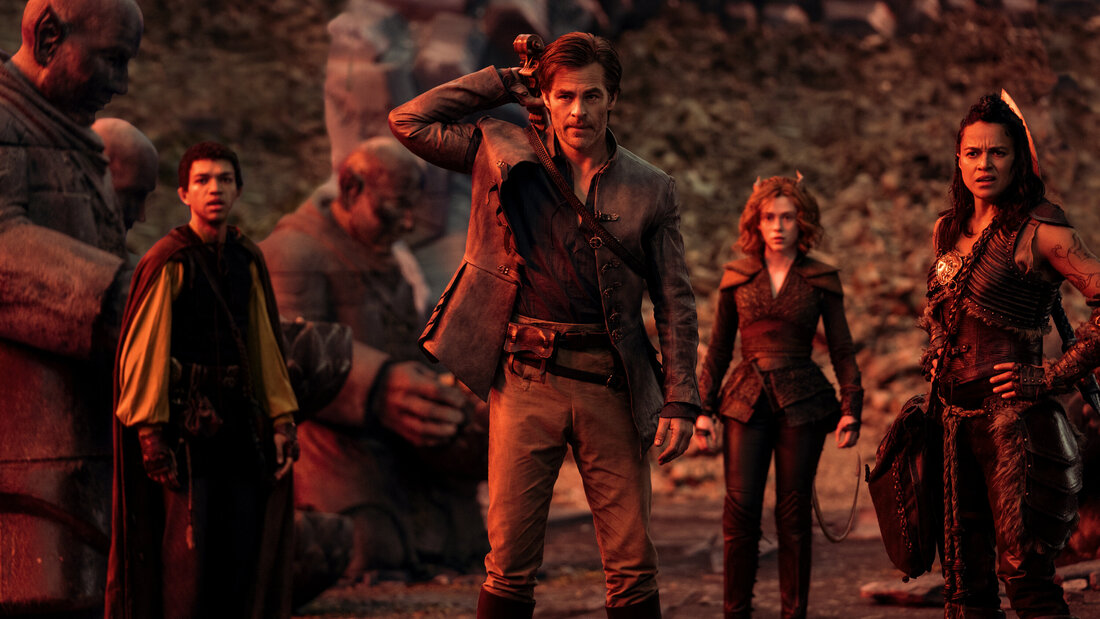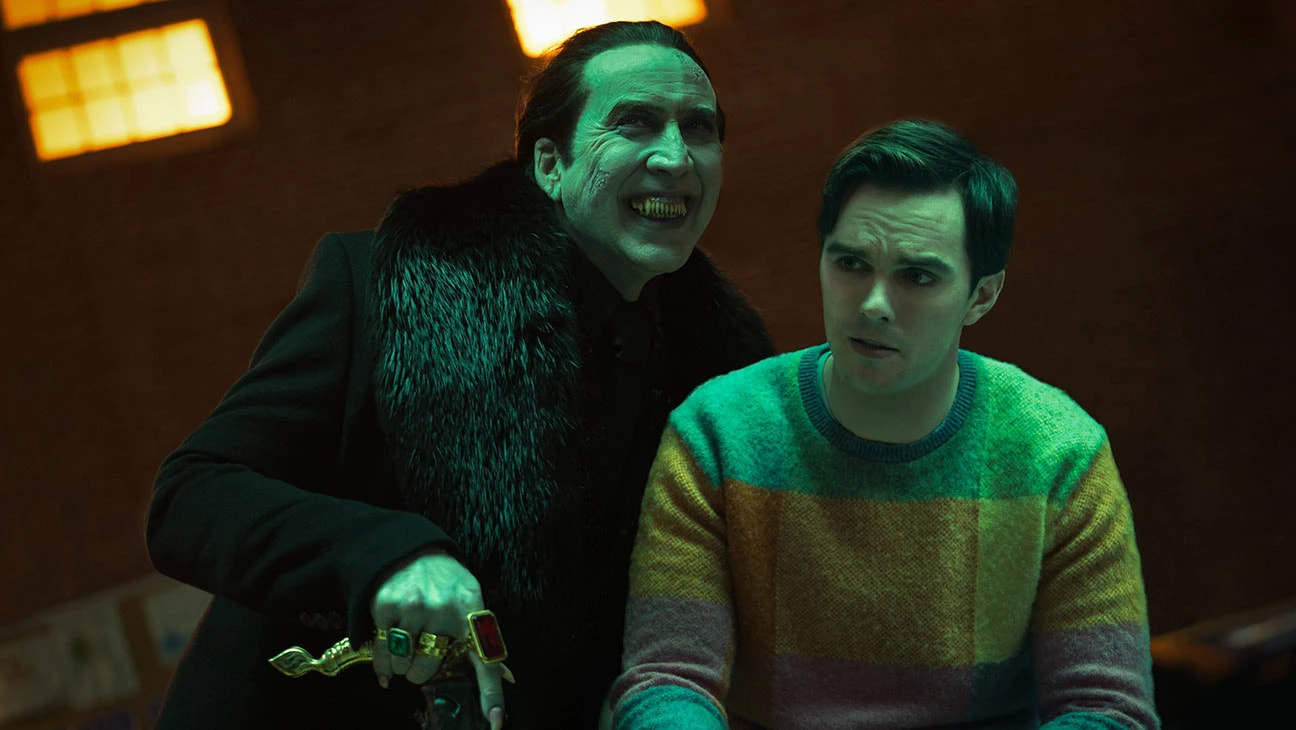|
by Philip Price Director: James Gunn Starring: Chris Pratt, Bradley Cooper & Dave Bautista Rated: PG-13 Runtime: 2 hours & 30 minutes “Guardians of the Galaxy Vol. 3” is the most confounded I’ve been by a movie in some time. I don’t know how to process it completely. As a fan of director James Gunn, his first film, and a massive fan of ‘Vol. 2’ (as in it’s absolutely the best non-Avengers film in the MCU) I had high hopes for the gang’s swan song. Unfortunately, this final time out with this configuration of the Guardians - at least upon initial viewing - is an incoherent, repetitive, sensory overload so grating that any attempt at emotional resonance is rendered moot.
From the minute Will Poulter’s underdeveloped and underutilized Adam Warlock arrives to decimate the titular team it seems clear Gunn took his screenplay out of the oven a few drafts early. The character of Warlock (who was heralded as a Christ-like figure in the second film) is presented as a clown mere minutes after almost annihilating the Guardians with little to no effort. The contrast could work, sure, but it's not developed in any recognizable fashion as Gunn was clearly more interested in High Evolutionary (Chukwudi Iwuji), a mad scientist of a man whose abusive yet paternal tendencies certainly fit the writer/director’s running themes in these movies, yet High Evolutionary’s arc feels as stock as the template Gunn uses to close out his trilogy. Iwuji also likes to yell. A lot. When I say template, I'm of course referring to the one where a main character becomes incapacitated, and the movie then spends the rest of its runtime sending his friends who desire to save him on countless missions to locate countless MacGuffins required to in fact save him. I realize many a genre flick relies on these kinds of plot devices as a way of propping up their bigger thematic ideas through easily accessible checkpoints, but Gunn feels above this and that he chose to go out leaning on such a structure would only seem to suggest that the script and, as a result, everything afterward was not necessarily ill-conceived, but feebler in the way James Gunn movies are typically bold and affecting. This isn't to say I loathed the film, but what made the previous ‘Guardians’ movies so unique was the lack of expectations and the exceeding of expectations not only because of quality but because of how unconventional they were in regard to both the Marvel Cinematic Universe and movies of the comic book ilk as a whole. This is what makes the third film's reliance on some rather broad tropes so disappointing while the rather uninspired nature of the soundtrack this time around (the best of the choices being Earth, Wind & Fire's "Reasons" both because it felt in league with Gunn's previous selections as well as it has been far too long since I'd heard the song) only emphasizes the kind of rushed and unsophisticated approach Gunn seems to have taken (been forced to take?). I know I know ... the Guardians aren't supposed to be sophisticated or refined or whatever, but Gunn's storytelling always has been (the moment Ego reveals the twist in ‘Vol. 2’ is genuinely one of the most devastating moments in recent film history) and ‘Vol. 3,’ though naturally having its moments, more often than not feels madcap and incoherent past the point of intention. The set design and the fact there are actual sets, the color palette, along with whatever kind of lenses they are using here (can someone let me know which they are though for real because I really love how this looks) automatically enhance the experience. I love and appreciate that Gunn found a new style around which to conceive this film and I love that he stayed true to the character lore and traits he established in the past films by delivering on Rocket's origins. I love that Chris Pratt's Star-Lord isn't again asked to be the charismatic leader but is dealing with losing Zoe Saldana's Gamora and Gamora's continued rejection of what once was. I love that Pratt is really good in this and that the pain in his performance transcends the fact most of his dialogue is still jokes and/or exposition. And while there are moments in which Pom Klementieff and Dave Bautista - a reliably comic pairing - stretch past their typical banter to provide real growth and insight for their characters much of it still boils down to shouting equals laughing and their character's destinations then don't feel as earned or impactful as some of the others. What always separated ‘Guardians of the Galaxy’ from the rest of the MCU pack was their ability to be these ginormous, big-budget, special-effects extravaganzas while at the same time feeling like extremely personal films made via the vision of one person. I realize I may sound like someone complaining because this trilogy-capper isn't enough like its predecessors, but it's not that “Guardians of the Galaxy Vol. 3” is too much of a departure, but more that large swaths feel passable rather than personal. It is within a series of flashback sequences that Gunn is the most invested, yet these scenes are at such odds with the rest of the movie that even if they were as compelling as they think they are they still wouldn't be sufficient in convincing me Gunn had enough left to say with and about these characters to warrant a final trip with these a-holes.
0 Comments
by Julian Spivey In December I saw something called the “12 Movies Challenge” on Facebook. The premise was that you would have 12 months to watch 12 movies recommended by 12 friends. I don’t often participate in such social media challenges but being a movie buff I felt this might be an interesting way to get out of my comfort zone a bit when it comes to watching movies. My Facebook buds gave me some films that I’ve been meaning to watch and I pretty much front-loaded those on the list – though not explicitly stated in the challenge rules I am opting to watch one film a month. A Best Picture winner like “Out of Africa” is an obvious choice for me to get to at some point – that point is now going to be March of this year. But there are certain movies I’m not really looking forward to all that much – I’m looking at you “The Ghost and Mr. Chicken,” my August selection. Then there’s the acclaimed stuff that isn’t really up my alley like the anime feature “Spirited Away,” which I’ve scheduled for November. That will truly be me getting out of my comfort zone. Here are the 12 movies recommended to me and the months I’ve assigned myself to watch them: January: “Merry Christmas, Mr. Lawrence” (1983) February: “Till” (2022) March: “Out of Africa” (1985) April: “Legally Blonde” (2001) May: “The Devil Wears Prada” (2006) June: “The Birdcage” (1996) July: “Morning Glory” (2010) August: “The Ghost and Mr. Chicken” (1966) September: “Pan’s Labyrinth” (2006) October: “Rocky Horror Picture Show” (1975) November: “Spirited Away” (2001) December: “The Last Laugh” (1924) It finally happened. I finally got to a recommendation on my 12 Movies Challenge that I didn’t care for – sorry Tyler!! My friend (and frequent The Word collaborator) Tyler Glover recommend director David Frankel’s 2006 comedy-drama “The Devil Wears Prada,” and I had a hard time with it.
I’m not all that surprised I didn’t like the film, after all, I don’t care one bit about fashion or the fashion industry and that’s the world this film is set in. The industry ultimately feels pompous and over-important to me. But there have certainly been movies set in worlds I didn’t have a prior interest in that I’ve liked over the years, so I always go in with an open mind. The film being set in the fashion industry wasn’t a bother to me when I actually watched the film. My biggest issue with “The Devil Wears Prada” is the very reason most people who love the film seem to love it – Miranda Priestly, the editor of an influential fashion magazine. Meryl Streep plays Priestly and I want people to know my dislike of the character has absolutely nothing to do with Streep’s portrayal, which is everything the script and character ask for. It’s just the character is such a mean, domineering, abusive person in a position of power and authority and one that bullies and berates those working underneath her that I couldn’t enjoy the film. The abusive boss character might be my No. 1 least favorite of any character type. And Frankel’s film and Aline Brosh McKenna’s script based on the 2003 novel by Lauren Weisberger does nothing to redeem Priestly, despite there being some moments where it feels like it might happen. It's not been a real-life problem for me for most of the last decade, thankfully, but having had horrible, mean bosses in the past it’s something that I won’t identify as a trigger for me, as I don’t have a panic attack or mental breakdown while watching a portrayal of one, but it’s almost always off-putting to me. If there is such a character, I need some sort of comeuppance to happen to them, which doesn’t happen in this film. She’ll just go on in life continuing to be the abusive boss she’s always been. It’s even more off-putting to me knowing that many of those who love this movie absolutely love the Priestly character. I just hope it’s not something they aspire to become. I do find myself for part of the movie identifying with Anne Hathaway’s idealistic, young journalist Andy Sachs, who doesn’t fit in in this world, but knows it will be a good jumping stone to something bigger in her career. It’s when she ultimately decides to kowtow to Priestly’s authority and become what she’s expected that I completely am taken out of the movie – even if she has the late change of heart and ultimately gets to become the person she wanted to be all along. I’m astounded by the amount of Frankel-directed films I’ve seen. He’s only helmed eight films since his directorial debut in 1995 with “Miami Rhapsody,” but somehow I’ve managed to have now seen half of his filmography having previously seen 2008’s “Marley & Me,” 2012’s “Hope Springs” (also starring Streep) and last year’s “Jerry & Marge Go Large.” He makes safe, unoffensive, unchallenging movies. I don’t know how I’ve stumbled into such a high number of them. My June recommendation is director Mike Nichols’ 1996 comedy “The Birdcage,” starring Robin Williams, Gene Hackman and Nathan Lane, based on the 1978 French-language film “La Cage aux Folles.” This film was recommended to me by my friend Remington and it’s one that has been on my “to-watch list” for quite some time and I’ve just never gotten around to it. So, thank you Remi for forcing my hand. Capsule Reviews: 'The Covenant,' 'Polite Society,' 'Peter Pan & Wendy,' 'Big George Foreman'5/24/2023 by Philip Price The Covenant “The Covenant” is a solid genre flick elevated by everything it's made up of. Director Guy Ritchie's craft has never been more appreciated despite this largely not feeling like Ritchie in any traditional sense. This shouldn't be a surprise though, as lately, the director has inserted himself into genres to try his hand at rather than placing the genre itself in a stylistic chokehold. After more than 25 years of making movies, Ritchie has figured out how to impress his manifesto upon a platform rather than changing it completely. With “The Covenant,” one can feel the looseness of the filmmaking and how it tends to emphasize the unpredictability of many of the scenarios we are thrown into, but rather than reinventing the wheel, Ritchie simply uses his style to make the wheel turn effectively. Separate from but intrinsically linked to Ritchie's contributions are the two rock-solid lead performances from Jake Gyllenhaal and Dar Salim who bridge the gap between the two distinct parts of this film that might have felt more glaring were it not for their ability to communicate why one aspect is as vital as the other. As it turns out, the film is as much about the kinds of actions these people are asked to take and the sacrifices they are asked to make as it is the system that props them up when they're of service and lets them go when they move on. There are some tremendously compelling editing and shot selections in certain moments that communicate the frustration of the fraudulence these interpreters at the heart of the story are brought in under. Editing has always been a key staple of Ritchie's style, but here the result inspires more intense and complicated feelings than it signals a smirk. “The Covenant” displays as much as it does diagnose what it's examining without ever feeling pontifical or exploitative and while it might always remain questionable if Ritchie was the right person to tell this story it would seem indisputable that he did in fact do it justice. “The Covenant” is currently in theaters. Polite Society If one were to mix the mentality of Edgar Wright with a little bit of Matthew Vaughn's bite and then add a dash of commercial Steven Soderbergh, you'd have a semblance of what writer/director Nida Manzoor's “Polite Society” is all about. It's an incredibly energetic and surprisingly British adventure despite the clear Pakistani inspirations. Between the character dynamics of sisters Ria (Priya Kansara) and Lena (Ritu Arya), the sisters and their parents, their parents and their social circles, as well as Ria and her school friends and how each of these manages to keep the tone in check while feeding into and helping to develop these very authentic themes such as how loving someone with such intensity makes it hard to let them go but trying to save someone who doesn't care to be saved or view themselves as being in a position that needs saving only pushes them further away is really impressive; all of it coalescing into something with a real pulse and flavor all its own. That said, Manzoor, her cast, and as a result, the film never takes anything too seriously making what is a pretty trippy plot twist and some really fun action sequences all the more cohesive with everything mentioned prior. “Polite Society” goes for a lot and Manzoor had to have the right type of control in order to make all of her attempts work successfully, but her field goal percentage is pretty damn spectacular. There are all these hilarious and equally outlandish little touches throughout the film that serve to balance out the more genuine emotions at the heart of the story, but it is those core themes that remain prevalent. How often the dialogue is cut off by a scene change for comic effect really worked for me, the hawk sound effect on the versus sequences, the condom-planting scene, the structuring with Ria's letters to her stunt hero, Eunice ("I know you must be super busy working on a Marvel or a Star War...") and the whole idea of taking the "monster-in-law" motif to an almost surreal and truly bizarre level all somehow managed to make sense in the same movie and yet I still came away being most impressed by the growth of the two central characters. And so, in short, I can't wait to see where Manzoor's career goes from here. “Polite Society” can be seen in select theaters, as well as rented for $19.99 on Amazon Prime Video, YouTube & AppleTV.
by Philip Price Director: Ari Aster Starring: Joaquin Phoenix, Patti LuPone & Amy Ryan Rated: R Runtime: 2 hours & 59 minutes I didn’t hate it. I didn’t love it. I can appreciate it, but beyond technique, the emotional intent doesn’t transcend the surrealism prohibiting what transpires or at least the many interpretations of what is happening to land in a way that is meaningful and instead, it mostly feels subversive for the sake of being weird. Director Ari Aster's odyssey that is “Beau is Afraid” walks a fine line for the entirety of its three-hour runtime between nightmare scenarios from the perspective of Joaquin Phoenix’s titular character and the comical follies of everyday life … even when dealing with the most serious of serious subjects. Presented through the lens of Beau, everything we see is as it is because of the nature of the character’s anxieties and sometimes that might make situations darkly comic – putting together a puzzle with a married couple that makes up a picture of their dead son to the tune of Vanessa Carlton’s “A Thousand Miles”, for example – or downright disturbing (unexplained notes being slid under your door in your shitty apartment building blaming you for loud music that you aren’t playing, anyone?), but nothing about Beau’s life is relieving and that is the burden Aster asks of his audience: to make this a shared experience rather than a spectator sport. What I took away from shouldering part of the weight of Beau’s psychosis, of which I anticipate everyone will have their own, was this line of thought about everything one goes through and puts themselves through in order to please certain people in their life only for those people to not recognize said struggles or appreciate any of the effort, but only still criticize things and/or people for not living up to their expectations. Coming to terms with certain anxieties and truths about one’s own self is a win for the film, no doubt, as going to the movies is cheaper than therapy, but with the broad spectrum of episodes “Beau is Afraid” imagines Aster seems just as interested in what his audience takes from his film as he is in what his film takes from its audience. Is it a bold cinematic experiment? Yeah. A provocative gamble? Undoubtedly. And yet, this is a film so caught up in its own need to validate and crystallize these small moments and specific feelings that more than any one theme, issue, or even character anchoring the story and further, the emotional consequence of the film, “Beau is Afraid” instead makes the audience question the very nature of this kind of storytelling. Halfway through the journey, it began to feel like a trek and the mind began to wander, wondering what it was about certain art forms that made individuals feel the need to express and/or get things off their chest via silly movies that sometimes take themselves seriously. I certainly found myself sympathizing with Phoenix’s character and the suffering he was experiencing, but the fact the film at once led me down a thought path that asked what Aster hoped to accomplish with this as well as consider how much of it was done in vain made the whole of the experience more exasperating than enlightening. As acknowledged, the techniques, production design, shot design, soundtrack selections, and many of the performances littered throughout naturally assist in making Aster’s brand of paranoia a little more digestible yet not even the highs can compensate for this type of excessive self-reflection. It’s funny because one of the biggest tricks in Aster’s directing bag that signals you’re watching an Aster film is staging the same shot at what are very obviously two different points in time so as to allow him to make a jump cut and simultaneously signal both the passage of time and the lack of progress. It’s funny because with such a cut, if one blinks at the exact right moment it can feel like hours have passed in an instant and while I may have hoped for as much in the midst of watching “Beau is Afraid” I would have much-preferred progress regarding shaping what still feels self-indulgent into something more meaningful and insightful than this purports to be. I mean, how many times can we sever a head to symbolize the need to break the chains that have always been present? If we’re going to get weird, let’s get deep, amirite? Parker Posey is a real one though. For real. “Beau is Afraid” is in select theaters. by Philip Price Evil Dead Rise “Evil Dead Rise” is slick, sick and the perfect amount of "staffanie." It never rises above exactly what it needs to be, but fully delivers on its promises. “Evil Dead Rise” and writer/director Lee Cronin go all in on the gross-out gore while stretching the vulgarity of the violence to include the necessary streak of fun without leaning into any camp. Surprisingly, the film plays more as a homage than the sequel it's intended to be, but as a passing fan of the franchise the mythology is neither here nor there to me. Anna-Maree Thomas gives maybe the most physically disturbing onscreen portrayal since Jennifer Carpenter in “The Exorcism of Emily Rose,” the contained and efficient nature lends a certain intensity without sacrificing the necessary depth, while the deadite design here is just effortlessly cool. I’ll be shocked if there's a better title screen this year. "Evil Dead Rise" is currently in theaters. Chevalier “Chevalier” is formulaic yet invigorating, director Stephen Williams' film begins as something of a musically-rooted Western that might have benefited from having its operatic tone extend further than the opening sequence but becomes - to my frustration - more a mix of biographical drama and forbidden love story. This choice doesn't make this a bad film, but it is somewhat detrimental as not continuing to highlight what makes its titular character so singular only results in a more paint-by-numbers picture. Still, I was invested in Kelvin Harrison Jr.'s magnetic portrayal of this man elevated by a world that appreciates his talents but is still treated as less than while rooting for him and Samara Weaving's Marie-Josephine even if Marton Csokas was clearly cast for a reason (Csokas also looking like a slightly younger Russell Crowe here).
Given the film tells this true story that occurred in 18th-century France the revolution is looming; the film even labels itself as something of a prelude to such. It is in this more political aspect that Stefani Robinson's script as well as the film itself find the core of why the story of Joseph Bologne AKA Chevalier de Saint-Georges is not only worth telling, but why it needs to be told. After being cast out of his position as Chevalier and removed from contention for the highest musical office in France due to his complexion both Bologne and the film begin to attempt to grasp the bigger picture: why has this world been designed the way it was? Why are other men granted the right to have a certain power over other men's lives? Why do these powdered positions of power insist those who look different from them have no choice in their fate? These are big questions that naturally lead to some deep contemplation both for characters on screen as well as for those of us in the audience even if the film shortchanges itself in such explorations. It shortchanges itself in that there is a broad stroke to everything the film wishes to convey while the structure and pacing support and yearn for a more specific interpretation. Williams' direction offers up some smooth storytelling techniques with some notably nice transitions that assist in the edit, but while the core ideas are arrived at with passion their intensity isn’t as impactful as one might hope. Unlike its subject, “Chevalier” can't quite match its ambition with its execution yet given the weight of the story and everyone involved clearly pouring themselves into the material the finished product can't help but remain a compelling and entertaining experience. "Chevalier" is currently in theaters. by Philip Price The Pope's Exorcist Julius Avery (“Overlord,” “Samaritan”) is a solid genre filmmaker and exercises that muscle well here as the introduction to this ‘Conjuring’ replacement series is expertly paced, emphasizing Russell Crowe’s titular character and how he engages with the possessed as well as focusing on his process rather than solely relying on gross-out spectacle.' With no winking tone, the characters always consider the “why” in other characters’ archetypal actions lending a certain credibility and depth to the proceedings. Avery also relies heavily on his child actor - a real gamble - but Peter DeSouza-Feighoney pulls it off convincingly without teetering into humor. “The Pope’s Exorcist” hints at a focus on the politics and optics of exorcisms within the Catholic church, which would have made for a more interesting movie, but Michael Petroni and Evan Spiliotopoulos' screenplay does at least leverage real historical actions of the church for the current consequences it seeks to sow even if it does get bogged down by said backstory. Despite the early potential, some genuinely freaky visuals, and several scenic shots of Crowe on a Vespa, the film, unfortunately, deteriorates into an MCU-style showdown in which bad CGI hampers an otherwise compelling tale of fantastical experiences. That said, I would watch more of these. "The Pope's Exorcist" is currently in theaters. Sisu Jalmari Helander's “Sisu” is a fine example of being all you need it to be or more, if you desire that as well. On the outside looking in, if all one requires is a ‘John Wick’ period piece featuring some badass action sequences inspired by revenge then “Sisu” more than fits the bill. If you're looking for the aforementioned qualifier along with some modest exploration of the value we place on financial gain and the sometimes naive thought that it only takes wealth to provide happiness then it has that as well. That isn't to say Helander's film gets especially deep, but it does use its time period and setting as a way to give audiences the most extreme circumstances under which the value placed on money and the value placed on time was credibly equal. Taking the war genre - specifically that of WWII - and combining it with these unambiguous lines between good and evil and value and worth results in a journey that is as much about fighting for what you've earned as it is fighting for what is right. The Nazis are the bad guys here because there is no middle ground when it comes to Nazis thus justifying the extreme methods our protagonist takes in order to ensure his financial gain and eventually the quieter, simpler future he yearns for. If one remains on the outside looking in though and views this as a simple genre film of basic ambitions then what it needs is a construction and style that make it stand out which is where “Sisu” truly excels. Helander has heightened and/or elevated everything about what is largely a wordless experience making the imagery that much more vital. The pounding score from Juri Seppä and Tuomas Wäinölä only enhances the magnitude of the journey as well. From the color of the gold Jorma Tommila's hero discovers to the glow it emits emphasizing the intensity of its importance and preciousness Helander and cinematographer Kjell Lagerroos have treated each image as if they were paintings; evoking an iconography that makes the violence more shocking and the action more visceral. The latter half of the film takes a turn from the hand to hand combat to larger-scale action sequences that feature some dodgy CGI, but it somehow manages to seamlessly lean away from the full-on force of the earlier scenes and into the later kills by fully committing to the campiness and outlandishness of the violence it's depicting. This crossover from pure carnage to camp also aids in the shift from factual to fantasy (or fantastical) and the indication that a plentiful future sometimes comes from a repugnant past. That is if you need a little substance with your stabbing. Final note, the underwater bit where Tommila's character breathes in oxygen from a neck he’s just slit to avoid resurfacing is possibly the most badass thing I’ve ever seen. "Sisu" is currently in theaters. Mafia Mamma Toni Collette took the assignment and ran! Every minute of “Mafia Mamma” is over the top, cheap (especially in regard to some of the editing and needle drop choices) camp, but it's done with such lowbrow intent that it can’t help but be appreciated. Like, I have no idea who this movie is for, but it’s kind of a blast in how outrageously it commits to the bit.
"Mafia Mamma" can be rented on Amazon Prime Video, AppleTV & YouTube. by Philip Price The Super Mario Bros. Movie “The Super Mario Bros. Movie” is perfectly pleasant. It does exactly what it intends and little more; never eclipsing expectations. The movie crams in a lot for the purpose of pleasing everyone but does so in a fun, cohesive fashion that somehow manages to still feel adventurous while remaining completely safe in every conceivable way. The animation is truly stunning though, and Jack Black gets to sing, so I was pleased. "The Super Mario Bros. Movie" is currently in theaters. Dungeons & Dragons: Honor Among Thieves “Dungeons & Dragons: Honor Among Thieves” is some dorky ass shit, but John Francis Daley and Jonathan Goldstein's filmmaking feels inventive and props to them along with co-screenwriter Michael Gilio for seeming to graft elements of the game (which I am completely uninitiated with) onto what is essentially a heist film, taking the time to shoot on real locations that ultimately make-up for the lackluster CGI, and most importantly for having a good sense of humor BOTH about itself as well as in general. "Dungeons & Dragons: Honor Among Thieves" is currently in theaters. Renfield “Renfield” is a slight, but still largely enjoyable and VERY bloody romp that doesn’t overly concern itself with themes that might seep in from the story that props up its thin plot. Director Chris McKay (“The Lego Batman Movie,” “The Tomorrow War”) executes some gnarly kills while seamlessly weaving in some great little comedic touches with the action. The film has notably fun costumes and production design as well. As for the performances, Nicholas Hoult manages to carry the weight of Renfield's worries while generally remaining optimistic in spite of his obstacles; shouldering much of the horror/comedy tonal shifts the movie asks of him. Nicolas Cage is obviously having a blast and the movie is at its most fun when he's on screen, but Ben Schwartz goes from intentionally obnoxious to almost completely unbearable really quickly while Awkwafina's Rebecca is too one-dimensional to leave the planned impression despite firing off some of the best lines in the film, most of which she likely improvised. "Renfield" is currently in theaters. Paint “Paint” very much feels like one of those awkward, tweed-heavy comedies made in the early aughts that exists under the permanent shadow of Wes Anderson. The Owen Wilson of it all probably doesn't help with that impression, but Brit McAdams' film is both somewhat refreshing if not wholly confounding in its satirical dryness and complete lack of any real intent. The supporting ensemble is a prime example of the film's charm in that folks like Michaela Watkins, Stephen Root and Wendi McLendon-Covey are having fun playing with the tone McAdams is aiming for while also seeming to have no real idea what's going on or where this thing is headed. Some genuinely funny laughs come from this very specific sense of humor including the pronunciation of "Cheesepot Depot," the lack of any attempt to make characters look younger in flashbacks, the stunned kid magician in the telethon scene, as well as the "No Smoking" sign bit, but is this enough to sustain even a 90-minute comedy? Not really, but I also walked out chuckling, so...maybe? Or maybe I just desperately miss Wilson appearing in comedies where he possesses an outrageously irreverent attitude much to the chagrin of the characters around him but to the pure delight of the audience watching him. Either way, “Paint” includes just enough of this very niche brand to make that corner of the market I'll gladly include myself in, happy.
"Paint" is currently in select theaters. |
Archives
July 2024
|
